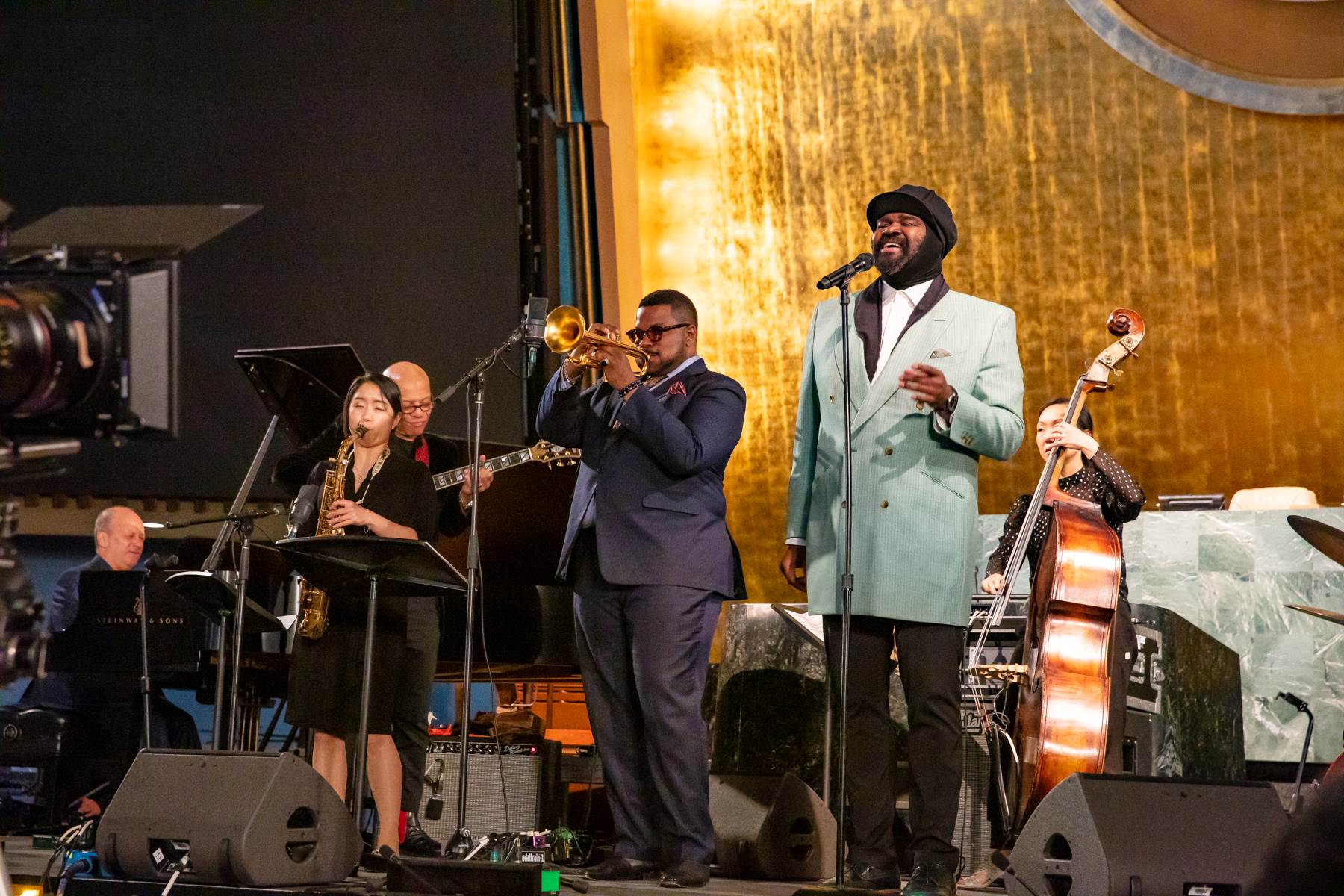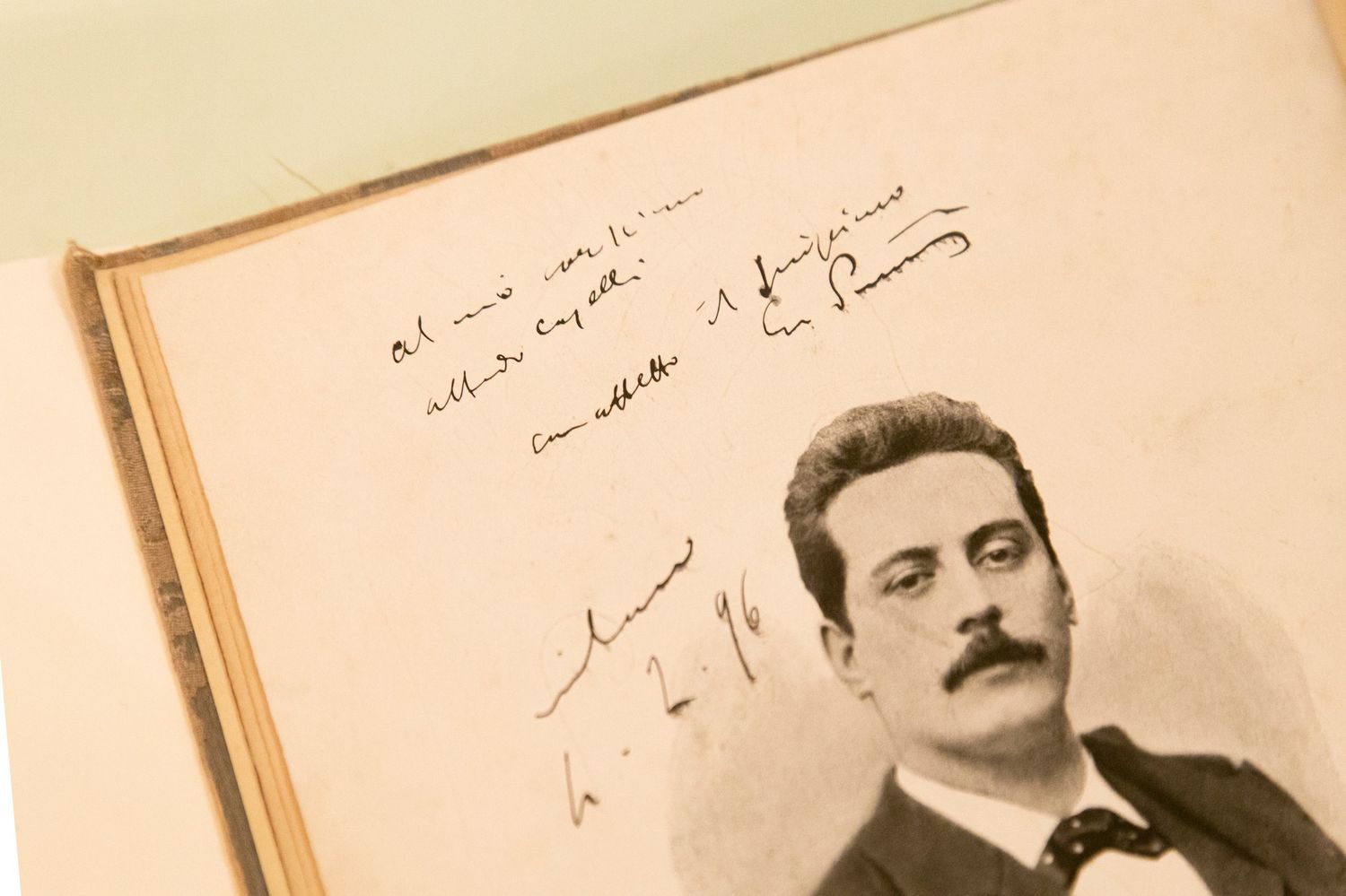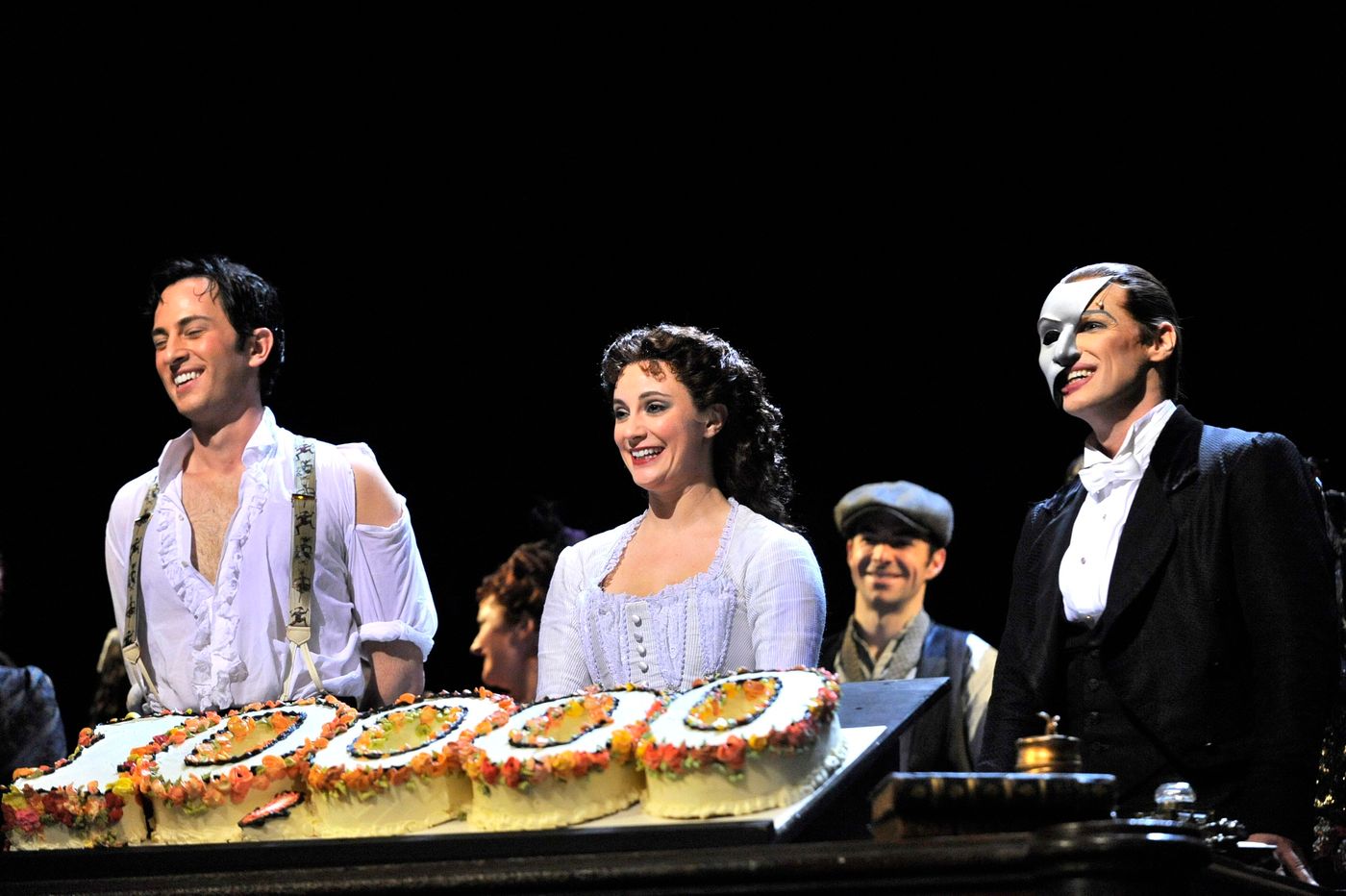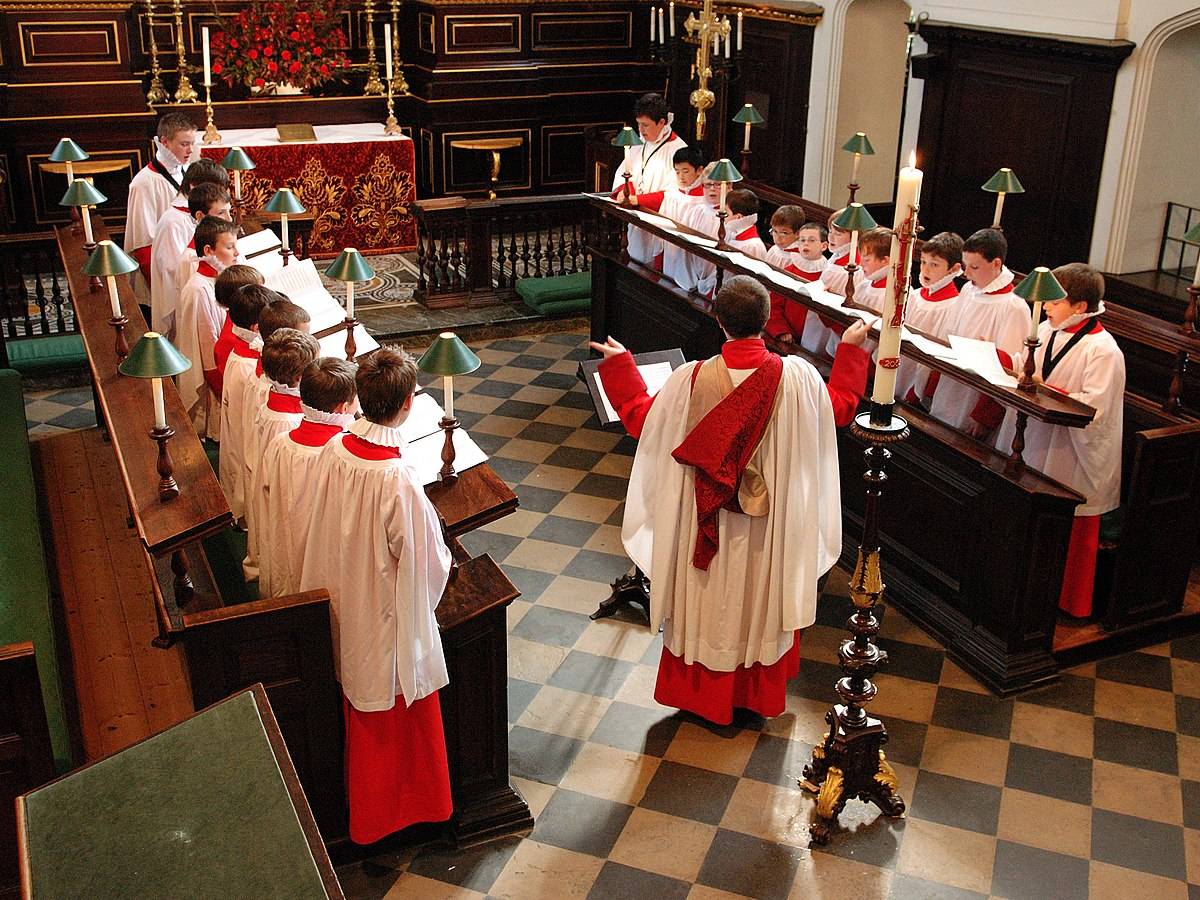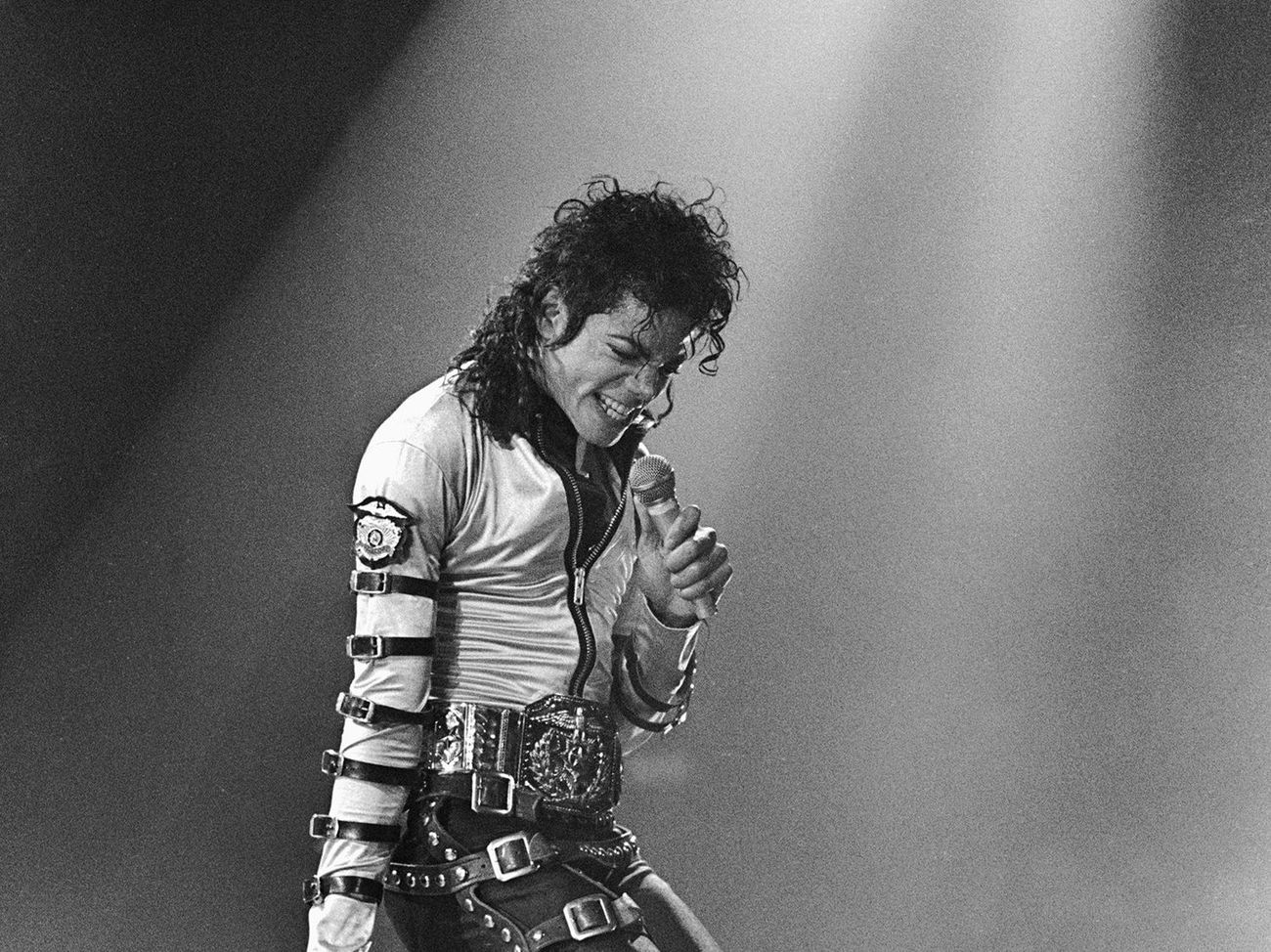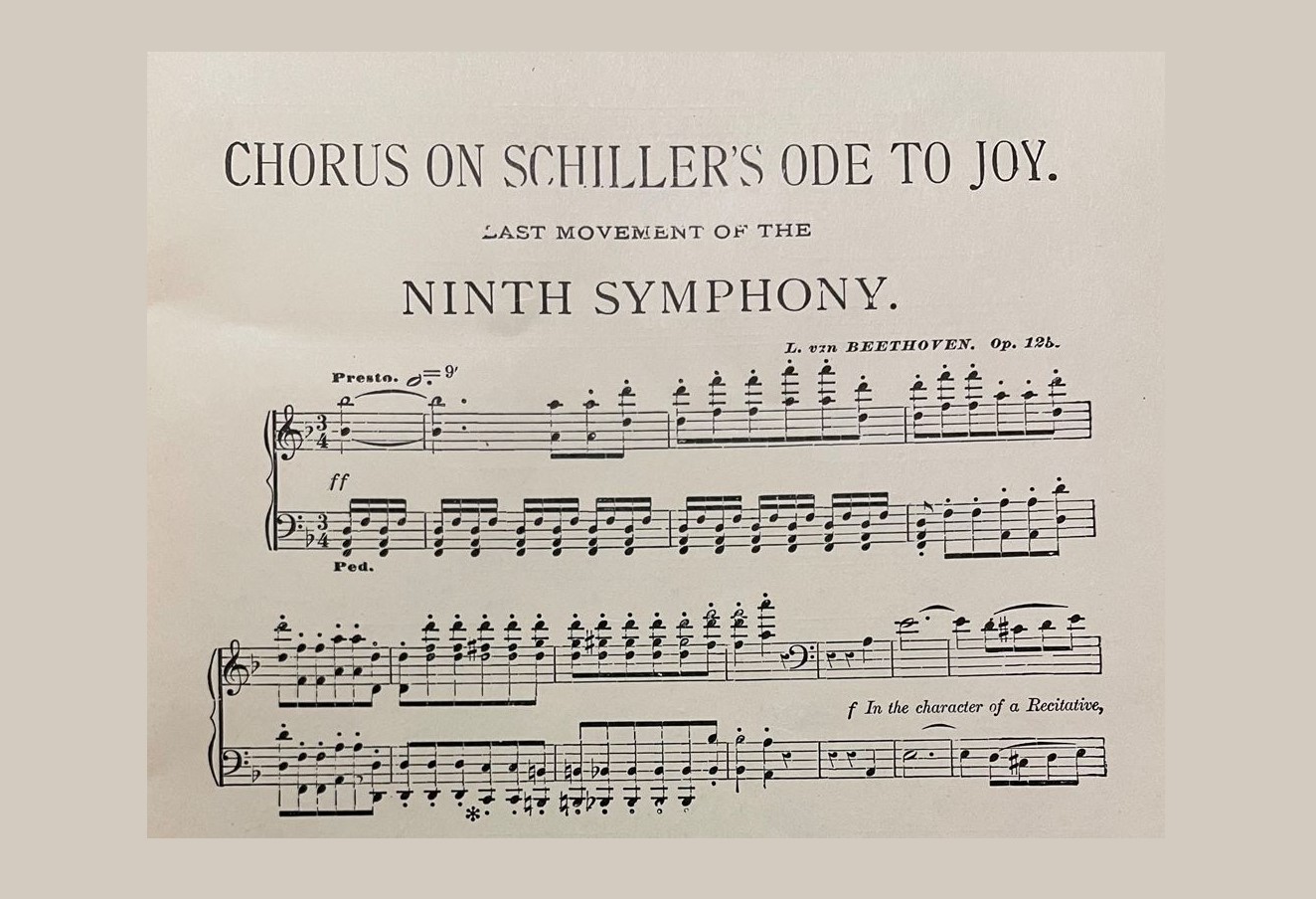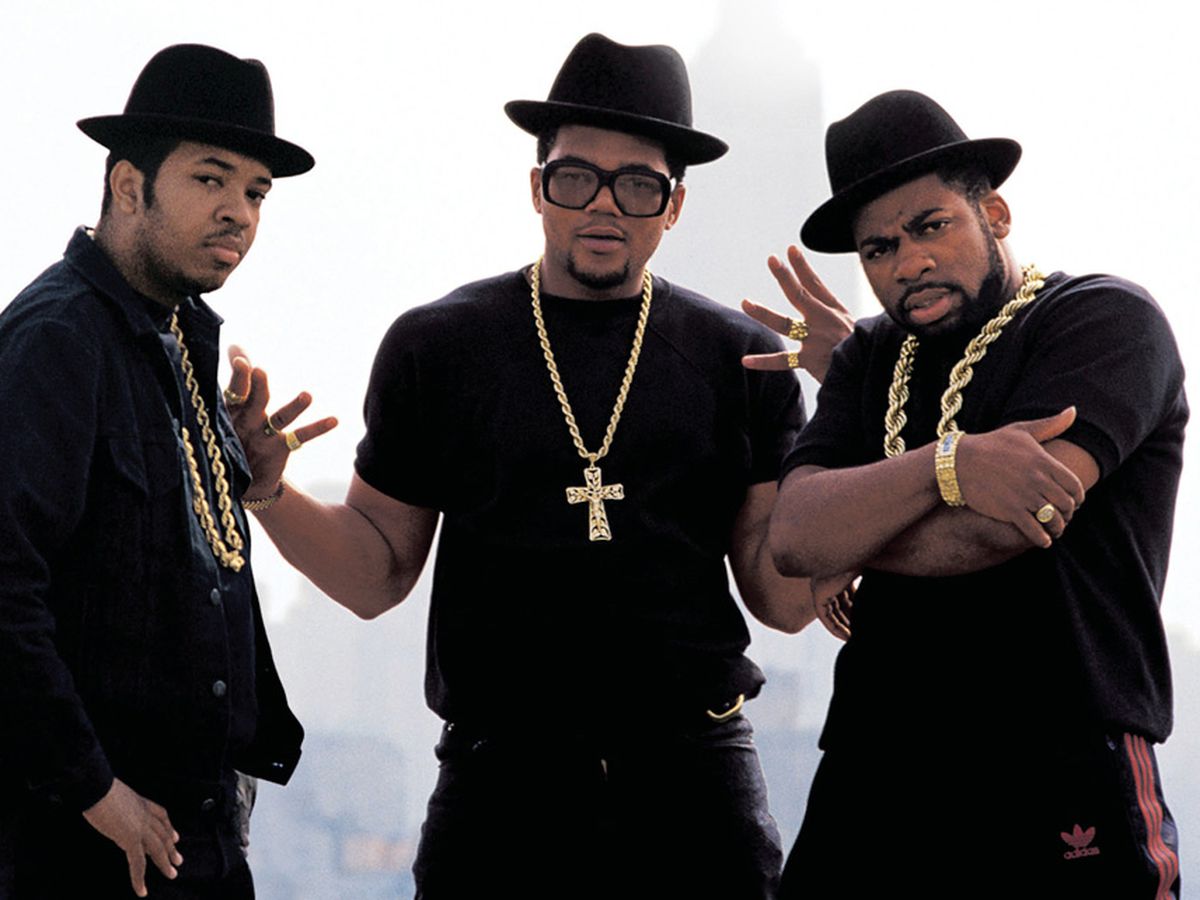Home>Events & Info>Music History>Why Is Monteverdi’S Work So Influential In Music History?
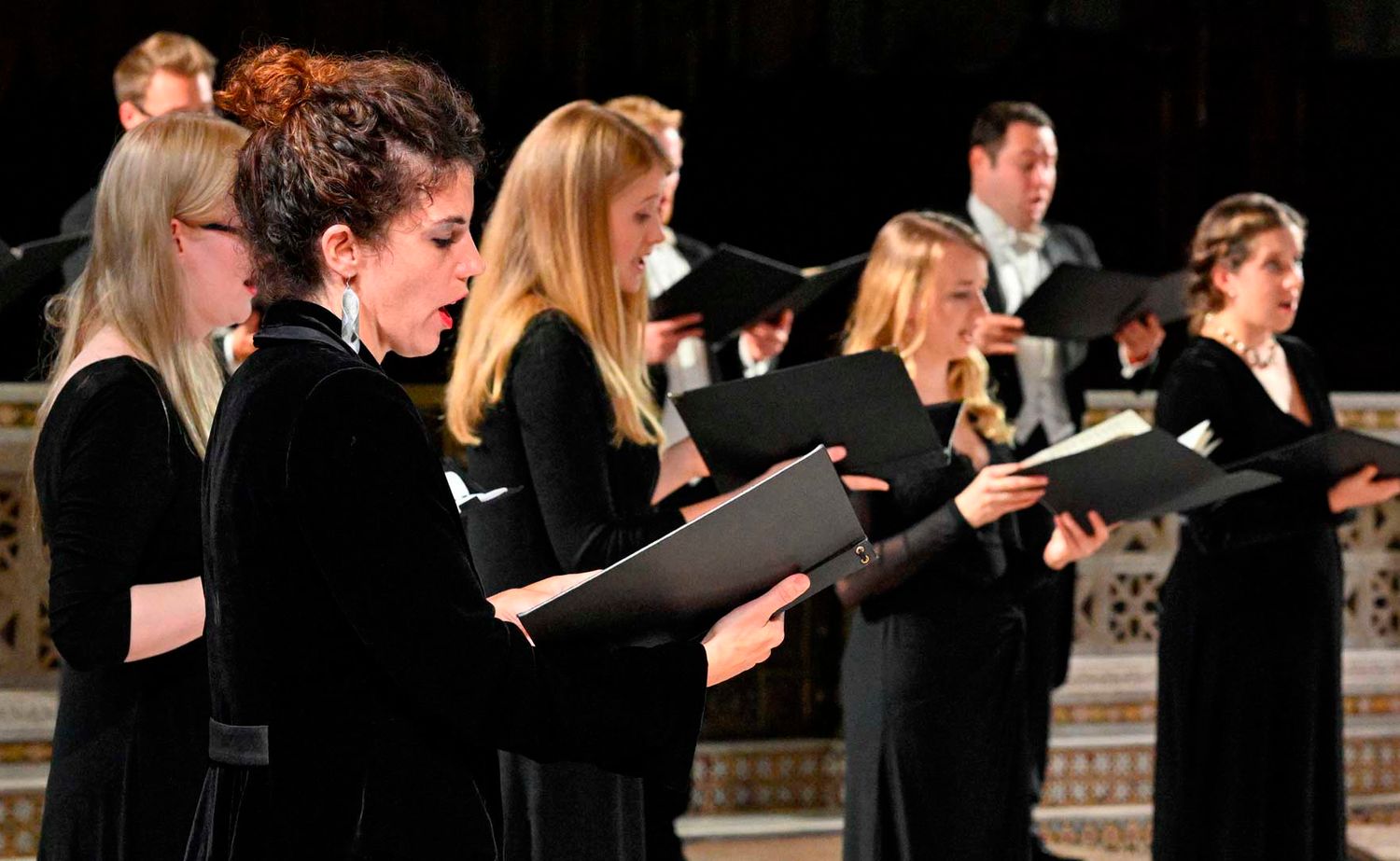

Music History
Why Is Monteverdi’S Work So Influential In Music History?
Published: December 28, 2023
Discover the significance of Monteverdi's work in music history and its profound influence on the evolution of the genre. Explore his revolutionary compositions and lasting impact on the world of music.
(Many of the links in this article redirect to a specific reviewed product. Your purchase of these products through affiliate links helps to generate commission for AudioLover.com, at no extra cost. Learn more)
Table of Contents
Introduction
Monteverdi and his significant contributions to music history have left an indelible mark on the music world. Claudio Monteverdi, an Italian composer and musician of the late Renaissance and early Baroque eras, is widely regarded as a pioneer of modern music. Born in 1567 in Cremona, Italy, Monteverdi’s innovative approach to composition and his exploration of new musical forms paved the way for future generations of composers.
Monteverdi’s work holds a special place in music history not only for its artistic brilliance but also for its profound impact on the development of genres such as opera. His ability to bridge the gap between the Renaissance and Baroque periods allowed him to incorporate new harmonic and melodic elements into his compositions, breaking away from the traditional musical structures of his time.
As we delve into Monteverdi’s life and his musical journey, we will explore the reasons why his work continues to be highly influential in music history. From his early life and musical training to his groundbreaking innovations, Monteverdi’s legacy stands as a testament to his genius and the lasting impact he has had on the world of music.
Early Life and Musical Training
Claudio Monteverdi was born into a musical family in Cremona, Italy, in 1567. His father, Baldassare Monteverdi, was a skilled surgeon and amateur musician who recognized his son’s early musical talent. At a young age, Claudio began his musical education, receiving training in singing, violin, and composition.
Monteverdi’s musical upbringing was greatly influenced by the rich musical culture of Cremona, a city renowned for its luthiers and musicians. He had the opportunity to witness performances by renowned composers and musicians, which further fueled his passion for music.
In 1590, Monteverdi was appointed as a musician at the court of Vincenzo I Gonzaga, the Duke of Mantua. This position provided him with a platform to flourish and expand his musical skills. Under the patronage of the Gonzaga family, Monteverdi had access to a wealth of resources, including a vast music library and the opportunity to collaborate with talented musicians and composers.
During his time in Mantua, Monteverdi immersed himself in the study of music theory, composition, and performance. He voraciously absorbed the musical styles of the time, including the polyphonic works of the Renaissance masters. This exposure to different musical influences laid the foundation for Monteverdi to develop his own unique musical voice.
Monteverdi’s talent as a composer and his ability to blend different musical styles flourished during his time in Mantua. His compositions began to showcase elements of expressive harmonies, vivid word painting, and emotional depth, setting him apart from his contemporaries.
Monteverdi’s early life and musical training laid the groundwork for his future success. The knowledge and skills he acquired during this time would be instrumental in shaping his musical experiments and innovations in the years to come.
Transition to the Renaissance Period
As the Renaissance period unfolded, music underwent a significant transformation, reflecting the shifting cultural and artistic values of the time. Claudio Monteverdi found himself at the forefront of this musical transition, boldly challenging traditional musical conventions and embracing new expressive possibilities.
During the late 16th century, the polyphonic style that had dominated music for centuries started to give way to a more homophonic texture, where a single melody and accompanying harmonies took precedence. This shift allowed for greater musical clarity and emphasized the emotional impact of the text.
Monteverdi embraced this evolving musical style and became one of its most prominent advocates. His madrigals, a form of secular vocal music, exemplified this new approach. In his madrigals, Monteverdi skillfully blended expressive melodies with harmonies that enhanced the emotional content of the text, creating a more dramatic and personal form of musical storytelling.
One notable collection of madrigals by Monteverdi, titled “Il primo libro de madrigali,” published in 1587, showcased a departure from the traditional polyphonic style. Through the use of vivid word painting and expressive chromaticism, Monteverdi introduced a heightened emotional depth, capturing the essence of the text in a more direct and immediate manner.
This transitional period also saw Monteverdi experiment with the use of instruments in his compositions. While vocal music remained at the forefront, the incorporation of instruments as accompaniment or interludes played a crucial role in expanding the expressive potential of his works.
Monteverdi’s skillful integration of voices and instruments in his compositions laid the groundwork for the emergence of the Baroque era, where instrumental music would eventually gain equal prominence with vocal music. His innovations paved the way for future generations of composers to explore the possibilities of combining voices and instruments in a unified musical language.
Through his willingness to embrace change and experiment with new musical techniques, Monteverdi played a pivotal role in shaping the transition from the Renaissance period to the emerging musical aesthetics of the Baroque era.
The Birth of Opera
One of the most significant contributions of Claudio Monteverdi to music history is his role in the birth of opera. Opera, a genre that combines music, drama, and spectacle, emerged during the late Renaissance and early Baroque periods as a new form of entertainment.
Prior to the development of opera, musical dramas were predominantly presented in smaller-scale forms, such as madrigals or interludes. However, Monteverdi sought to create a more complete synthesis of music and drama, giving rise to what is considered the first true opera – “L’Orfeo.”
First performed in 1607, “L’Orfeo” depicted the mythological story of Orpheus and Euridice. Monteverdi’s opera showcased an innovative use of recitative, a style of singing that closely follows the rhythm and inflection of speech, effectively blending musical expression with the natural cadences of the spoken word.
By incorporating recitative, Monteverdi created a heightened sense of dramatic dialogue and emotional immediacy in his opera. Instead of relying solely on arias or ensemble pieces, he used recitative to propel the narrative forward, allowing for a more dynamic interaction between the characters and the audience.
Another groundbreaking aspect of “L’Orfeo” was Monteverdi’s use of expressive music to convey the emotions and psychological depth of the characters. Through the skillful manipulation of harmonies, melodic contours, and orchestration, Monteverdi created musical moments that vividly captured the essence of the characters’ emotions, further enchanting the audience and enriching the storytelling experience.
The success of “L’Orfeo” paved the way for the establishment of opera as a popular and influential genre. Monteverdi’s bold innovations and his ability to weave music and drama together in a cohesive and powerful manner laid the foundation for future opera composers to explore and expand upon this new art form.
Monteverdi’s contributions to the birth of opera are not limited to “L’Orfeo.” Throughout his career, he continued to compose operas, such as “Il ritorno d’Ulisse in patria” and “L’incoronazione di Poppea,” each pushing the boundaries of the genre and contributing to its evolution.
The birth of opera, spearheaded by Monteverdi, forever changed the landscape of music. From its humble beginnings in Italy, opera quickly spread throughout Europe, captivating audiences with its unique combination of music and storytelling. Monteverdi’s pioneering works laid the groundwork for the development of this grand art form, ensuring his status as a visionary in music history.
Monteverdi’s Musical Innovations
Claudio Monteverdi’s musical innovations revolutionized the way music was composed and perceived during his time. His willingness to break away from traditional musical conventions and explore new creative avenues resulted in groundbreaking techniques that would shape the course of music history.
One of Monteverdi’s notable contributions was his development of the seconda pratica, also known as the “stile moderno” or “new style.” This approach to composition challenged the strict rules of counterpoint that had governed music for centuries. Monteverdi placed greater emphasis on the expressiveness of the text, allowing for more freedom in melodic and harmonic choices, as well as the use of dissonance for heightened emotional impact.
Monteverdi’s use of dissonance was particularly influential. In his compositions, he employed dissonant chords and suspensions to create tension and resolution, effectively enhancing the emotional depth of the music. This departure from the traditional consonant harmonies of the time sparked controversy, but it also opened up new possibilities for future composers to explore the expressive power of dissonance.
In addition to his harmonic innovations, Monteverdi made significant advancements in the realm of vocal and instrumental music. As a composer of madrigals, he explored new techniques for expressing the text through music. He employed word painting, a technique where the melodic and rhythmic elements of the music mirror the meaning of the words, creating a vivid and evocative musical portrayal of the text.
Monteverdi’s mastery of vocal and instrumental composition can be seen in his use of ornamentation. He added virtuosic embellishments to vocal lines and instrumental passages, enhancing their expressiveness and adding a touch of musical brilliance.
Another notable innovation by Monteverdi was his use of musical contrast to convey different emotions and dramatic moments within a composition. He skillfully juxtaposed sections of varying tempos, dynamics, and textures, creating dramatic tension and capturing the essence of the narrative. This technique had a profound influence on future composers and became a hallmark of the Baroque era.
Monteverdi’s musical innovations not only pushed the boundaries of composition and performance but also laid the foundation for the future development of music. His daring approach to harmonies, expressive techniques, and musical form paved the way for the emergence of the Baroque period, influencing composers such as Bach and Handel. Monteverdi’s legacy as a musical innovator continues to resonate in the music we enjoy today.
Influence on Baroque Music
Claudio Monteverdi’s profound impact on music history extended beyond his own lifetime and greatly influenced the development of Baroque music. His pioneering work and innovative musical techniques set the stage for the flourishing of the Baroque era, leaving a lasting imprint on composers of the time.
One of the areas where Monteverdi’s influence can be seen is in the evolution of opera. The groundbreaking operas he composed, such as “L’Orfeo” and “L’incoronazione di Poppea,” laid the foundation for the development of the genre. His use of expressive harmonies, vivid word painting, and incorporation of dramatic recitative greatly influenced Baroque opera composers, who built upon Monteverdi’s techniques and expanded the possibilities of the genre.
Monteverdi’s emphasis on the expressive power of music also had a profound impact on the development of vocal music during the Baroque era. Composers began to explore the emotional depth of music through elaborate ornamentation, dynamic contrasts, and the use of a more virtuosic vocal style. Monteverdi’s innovative use of dissonance and harmonic tension played a crucial role in this shift, inspiring composers to experiment with new harmonic language and explore the dramatic potential of the human voice.
Furthermore, Monteverdi’s influence on the role of instruments in music cannot be overlooked. While the Renaissance period primarily focused on vocal music, the Baroque era saw the rise of instrumental music. Monteverdi’s incorporation of instruments as equal partners to voices in his compositions paved the way for the development of the concerto, sonata, and other instrumental forms that became prominent during the Baroque period.
In addition to opera and vocal music, Monteverdi’s compositional techniques influenced the development of sacred music during the Baroque era. His use of text painting, expressive harmonies, and careful attention to musical structure informed the compositions of composers like J.S. Bach and Handel. Monteverdi’s sacred works, such as his Vespers of 1610, served as models for later composers as they explored new ways of expressing religious fervor and piety through music.
Overall, Monteverdi’s innovative spirit and his willingness to push the boundaries of musical expression left an indelible mark on Baroque music. His exploration of new musical forms, his emphasis on expressive techniques, and his integration of voices and instruments set a precedent for future composers, shaping the rich and vibrant landscape of Baroque music that we continue to admire and enjoy today.
Legacy and Impact on Music History
Claudio Monteverdi’s legacy as a composer and musician is immeasurable, with his influence transcending his own lifetime and leaving an indelible mark on music history. His innovative approach to composition and his significant contributions to various musical genres have shaped the landscape of music for centuries.
Monteverdi’s groundbreaking work in opera laid the foundation for the development of the genre. His incorporation of dramatic recitative, expressive harmonies, and vivid word painting transformed opera into a powerful medium for storytelling. Composers who followed, such as Handel and Mozart, built upon Monteverdi’s innovations and expanded the boundaries of the operatic form.
Furthermore, Monteverdi’s exploration of new harmonies and the expressive potential of dissonance revolutionized musical language. His use of dissonant harmonies to convey emotion and heighten musical expression paved the way for future composers who sought to push the boundaries of traditional tonal structures.
Monteverdi’s influence extended beyond opera and vocal music. His integration of voices and instruments opened doors to new possibilities in instrumental music. His use of contrasting textures, dynamic contrasts, and innovative compositional techniques laid the groundwork for the emergence of the Baroque concerto, sonata, and other instrumental forms.
Monteverdi’s impact on music history is not only evident in the Baroque era but resonates through later periods as well. Composers of the Classical era, such as Haydn and Beethoven, were indebted to Monteverdi’s pioneering spirit and innovative approach. Even in the modern era, Monteverdi’s influence can be observed in the works of composers who continue to draw inspiration from his expressive musical language.
Beyond his technical contributions, Monteverdi’s legacy lies in his ability to capture the human experience through music. His compositions reflect a deep understanding of the power of music to convey emotion, tell a story, and connect with the listener on a profound level. This emotional impact continues to resonate with audiences and makes his music relevant and appreciated to this day.
In recognition of his immense contributions to music, Claudio Monteverdi is revered as a pioneer and visionary. His willingness to push the boundaries of musical expression and his ability to bridge the gap between different eras have solidified his place as one of the most influential composers in history.
Claudio Monteverdi’s lasting legacy serves as a testament to his genius and the profound impact he had on the course of music history. His innovative spirit, bold experimentation, and unwavering commitment to musical expression continue to inspire composers and musicians of all generations.
Conclusion
Claudio Monteverdi’s contributions to music history cannot be overstated. His innovative approach to composition, daring musical experiments, and groundbreaking techniques have left an enduring legacy that continues to shape the world of music today.
From his early life in Cremona to his influential role in the transition from the Renaissance to the Baroque period, Monteverdi’s musical journey was marked by creativity, exploration, and a relentless pursuit of expressive power. His development of the seconda pratica, use of dissonance, and incorporation of expressive techniques like word painting all pushed the boundaries of musical conventions and inspired future generations of composers.
Monteverdi’s impact on opera cannot be overstated. By combining music, drama, and spectacle, he birthed a new art form that captivated audiences and transformed the way stories were told through music. His influence on vocal and instrumental music extended beyond opera, as he opened up new avenues for composers to explore and express the full range of human emotion.
The legacy of Claudio Monteverdi reverberates throughout music history. His innovations influenced the development of Baroque music, from the works of Bach and Handel to the expressive possibilities explored in the Classical era and beyond. Even today, his music continues to be admired and performed, reminding us of his visionary genius and the timeless power of his compositions.
In conclusion, Monteverdi’s work has left an indelible mark on the music world. His contributions to opera, vocal music, and instrumental music revolutionized the way music was composed, performed, and experienced. The impact of his musical innovations continues to shape the artistic landscape and inspire generations of musicians to push the boundaries of musical expression.
Claudio Monteverdi’s legacy as a pioneer, innovator, and visionary will forever be celebrated in the annals of music history. His relentless pursuit of musical excellence and his ability to transcend the musical conventions of his time serve as a testament to his enduring impact on the world of music.

